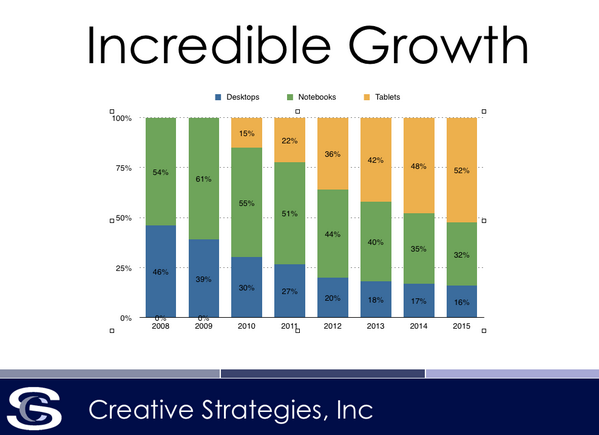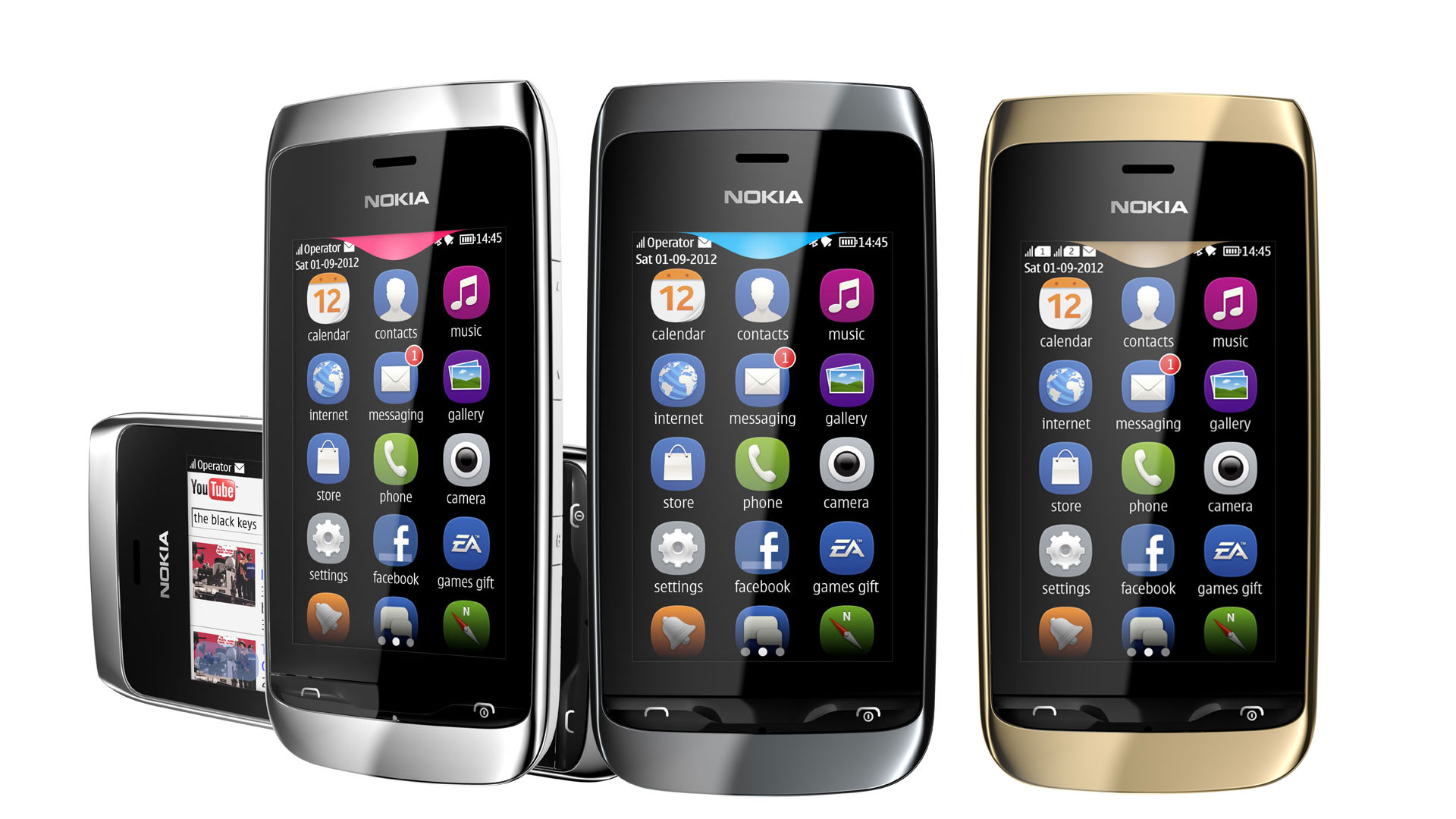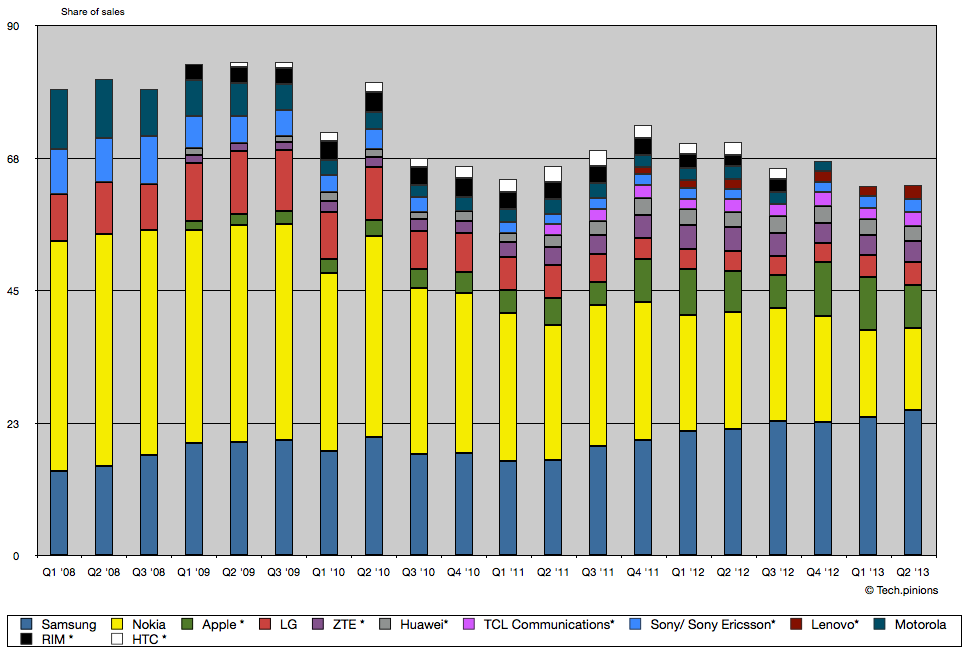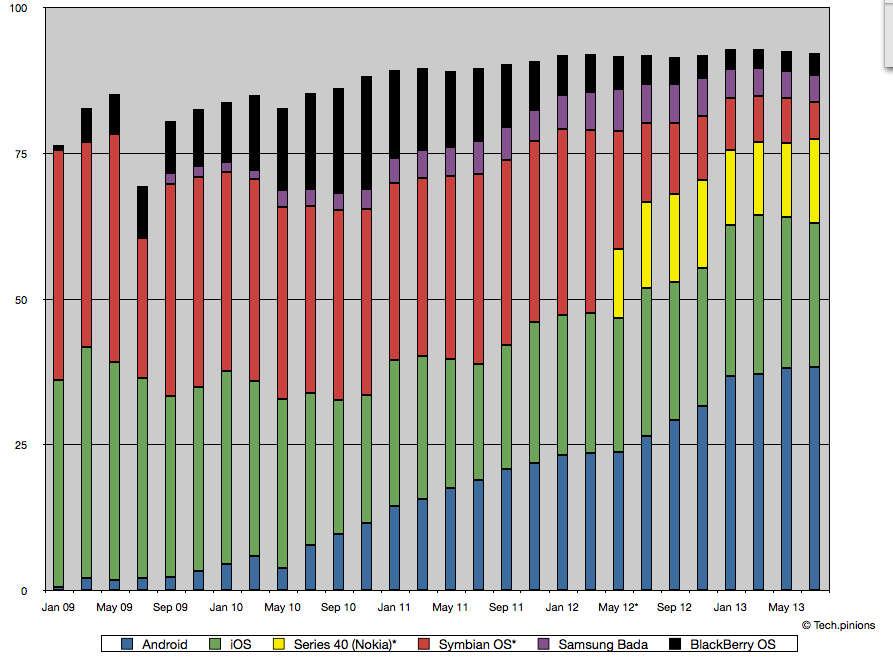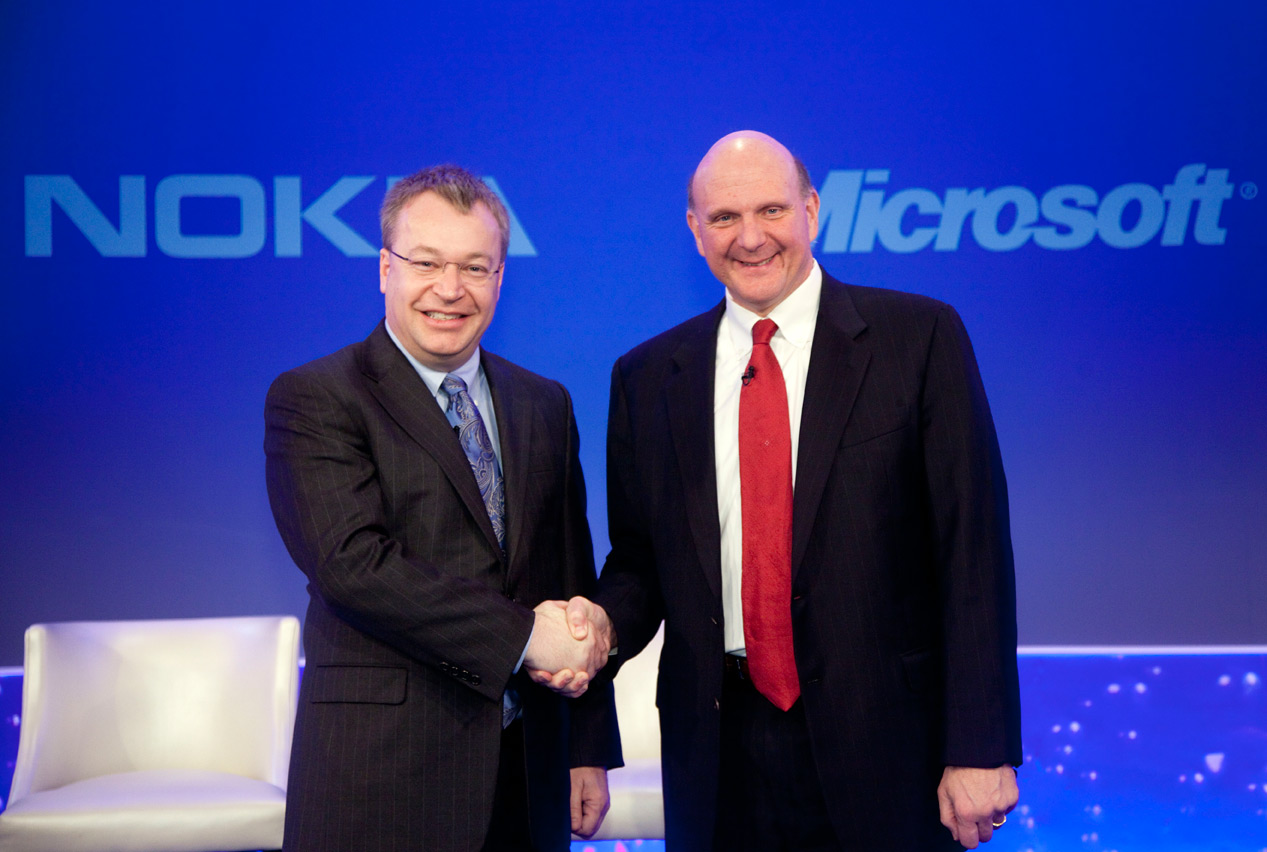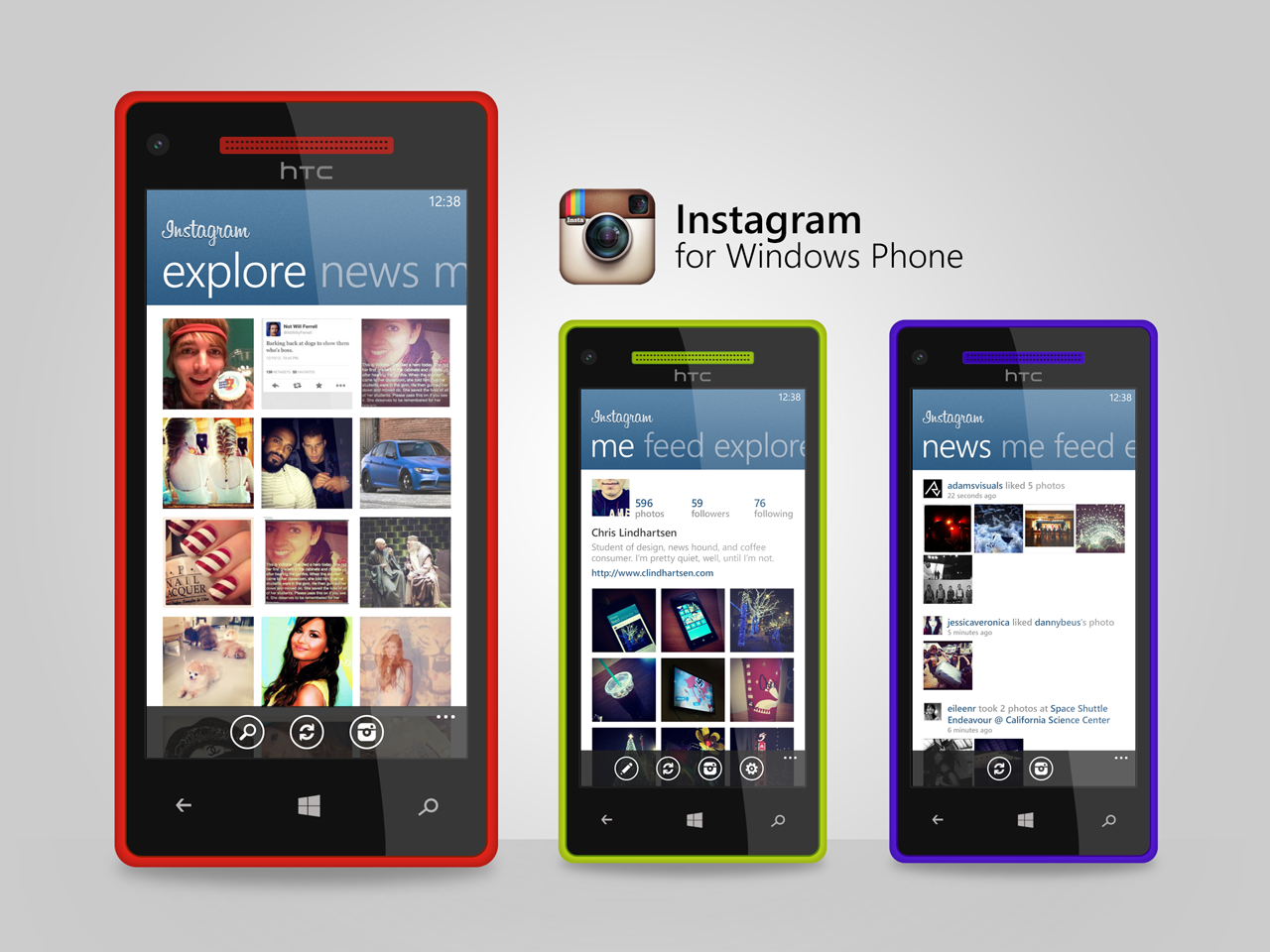When I first saw the direction Microsoft and their partners were looking to take Windows 8, I was optimistic. Metro sounded good in concept, as did some of the features and functions built into Windows 8. But then as the time got closer, it became very clear that this version, more so than any other, was going to depend a lot more on hardware than any previous version.
Prior to Windows 8, Vista was a hardware hog. In fact, I would argue that had more companies been more intentional about adding chips with better graphics, either discreet or integrated, that Vista would have performed better on early hardware. But Vista looks like a raging success compared to Windows 8 at this point.
As Patrick noted in his column the other day, it is ironic that we are in a position where the hardware is necessary to save the software. Building touch into notebooks and desktops is now the only way forward for Microsoft and partners. Microsoft has gone down a path of attempting to condition the market to not only be comfortable using touch on their notebooks and desktops but to desire it. I remain doubtful this will happen.
The primary reason is proximity and context. When we use notebooks or desktops we do so at arms length. This is the most comfortable position when the device is on your lap or on a table. Even though our arms are likely slightly bent while resting on the keyboard, the screen in most cases, is a full arms length away. Sometimes quite a bit more with a desktop.

Adopting a New Posture
While I was at Microsoft’s build conference last week, I decided to make a point to keenly observe those attendees who have embraced touch on notebooks and watch how they use them. The plus to being at a Microsoft conference was that I saw more touch notebooks, and Surfaces for that matter, in one location than I have ever seen out in one place.
What I observed was interesting. Those who had adopted touch on their notebook would type with the device at arms length, but then move their body and face closer to the screen as they sought to use touch input. In essence to use touch they actually leaned in, performed the action and either stayed or leaned in to scroll a web site for example, and then leaned back to start typing again.
Interestingly, Surface owners had adopted an entire experience built around leaning in. I can only speculate that this is because the screen is so small that staying leaned in closer to the screen makes it easier to read the text, etc. Surface owners would even type with arms bent significantly more because of how close they were to the screen.

My key takeaways from these observations were that to use a notebook, or an aspiring hybrid like Surface, adopting touch as a paradigm is one necessary component, but so is adopting new body language to operate it in a useful and efficient way.
So the question we need to ask ourselves is this: Is this better? Does touch bring so much to the notebook and desktop form factor that we should consider this new, somewhat un-natural required body posture worth the effort?
Let’s look at it this way. Is adding touch as a UI mechanism to something like a desktop or notebook a more efficient input mechanism? In notebook and some desktop form factors, I would argue that it is not.
I absolutely condone touch on smartphones and tablets. In these devices touch is natural, and the best and most efficient input mechanism for the use cases they are best at. This is because they are truly mobile and you use natural motions to touch the screen to navigate. But notebooks and desktop are different beasts that succeed at very different use cases for very different reasons.
WHY TOUCH?
What I’ve tried to bring out, both in public and in private, is this: does using touch as an input mechanism on a notebook or desktop make me more efficient in my workflow? I’m yet to find that it does.
When you sit behind a notebook or a desktop you are prepared to get work done. In this context speed, efficiency, and ease of use are keys to make these devices the best tools for the job. So for touch to be compelling, it must be better at the above experiences than a solid trackpad or external mouse. Does it do this? The answer is no.
Take the trackpad for example. My hands have less distance to travel for me to reach the trackpad on all installations. To use a trackpad I bring my hands closer to me a very short distance (maybe 2-3 inches). Contrast that with using touch as an input mechanism and rather than bring my hands in a short distance I must reach for the screen (approximately 5-6 inches). This requires more effort and more time than using the trackpad and is more tiring to the arm, by keeping it fully extended to operate. Unless you hunch over or lean in, which is also uncomfortable for any length of time. I concede that for some the amount of time and effort may not be considered much difference by some, but it is still a key point.
When I discuss this with those who advocate touch screens on notebooks, they propose that touching the device for input is a preferred mechanism to the trackpad. My counter point is that this is because most trackpads put on Windows PCs are downright terrible. Sometimes I wonder if Microsoft pushed OEMs to do this on purpose to make touching the screen seem like a better experience, simply because the trackpad is so bad, that it makes touching the device appear to feel like a better alternative.
I’d like to quantify this sometime by having a race with a Windows user and challenge them to a similar task, like creating a few slides and graphs in Power Point. Them on their touch notebook and me on my MacBook Air. We will see who can finish the task the quickest.
THE BLUNDER
So what is Microsoft’s blunder? Well, in my opinion, they made the strategic error of believing that what they did in Windows 8 would be the shortcut to help them compete with tablets from competitors. When in reality, to compete with other tablets, what they should have done was bring a version of Windows phone to the tablet form factor. Doing this would have done several things.
First, it would have significantly helped the Windows Phone ecosystem by way of apps. Quality and long tail apps are so dramatically void from the Windows Phone ecosystem that several carriers have specifically told me it is the reason for the abnormally high return rates of Windows Phones to their stores. By bringing Windows Phone to to the tablet form factor, it would have spurred more developer attention for phone apps and most likely tablet apps as well. Apple has lapped Microsoft in this area many times over.
The second thing it would have done was position Microsoft better for small screen tablets. Windows 8 is overkill in my opinion for what consumers want and do with smaller screen tablets. Windows Phone is positioned well for portrait mode use cases, which is the dominant orientation for consumers with small screen tablets.
Microsoft is at least 3 years or more behind in mobile. Windows 8 has and is doing nothing to help catch them up in mobile and realistically is only leading them down the path of being more behind. They have spent the bulk of their resources focused on areas of computing that are declining not growing. Tablets and smartphones are the growth segment and should have been the top priority. I would argue Windows Phone innovation and focus should have been a higher priority than Windows 8. I would even go so far as to make the case that Windows 8 should have been more evolutionary to Windows 7 and the revolutionary attempt should have been with Windows Phone and a specific tablet version of the Phone OS.
It would be hard to argue that an evolutionary version of Windows 7 would not have sold well running on the powerful, all day computing, thin and light hardware we are seeing enter the market this fall. You certainly could not make the case that we would have sold less Windows 7 devices in 2013 that’s for sure. In fact, I’m pretty sure I could make a compelling case that had Windows 7 or an evolutionary flavor of it, been the OS for 2013, that we would have sold more notebooks and desktops than we have and the PC market wouldn’t be off as much as it is.
To be clear, the blunder was thinking they could turn the ship by taking a PC approach instead of a post PC approach by focusing more on smartphones and tablets.
Who knows, maybe Microsoft will prove me wrong and announce some brilliant unification strategy with Windows 9 that solves the problems outlined above. I’d have an easier time believing this possibility if Microsoft had a better track record at getting things right the first time.
On a side note, notice that Apple has NOT introduced a touch based laptop. I believe Apple, who is very picky when it comes to user interfaces, knew that touching a screen on a laptop is completely unnatural and instead made the Magic Trackpad to emulate touch in a way that does not disrupt that natural motion of hands placed on a keyboard. I remain skeptical you will ever see a touchscreen based laptop from Apple.


 Agreed.
Agreed.
 I define the word “Geek” as, well, pretty much anyone who is reading (or writing) this article. We’re not like real people.
I define the word “Geek” as, well, pretty much anyone who is reading (or writing) this article. We’re not like real people. 